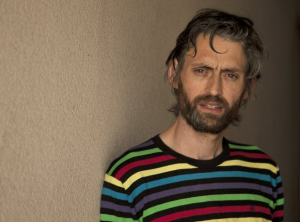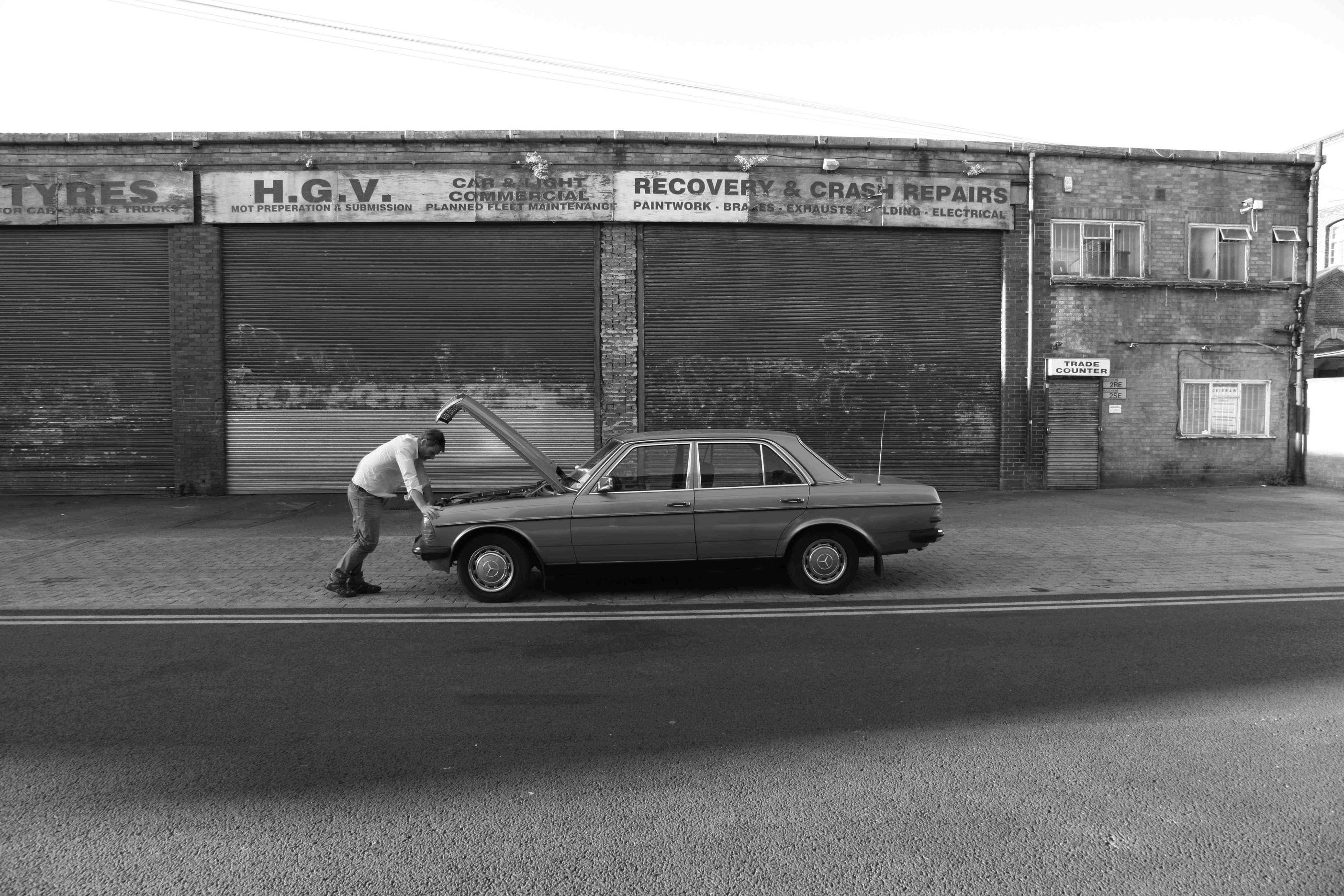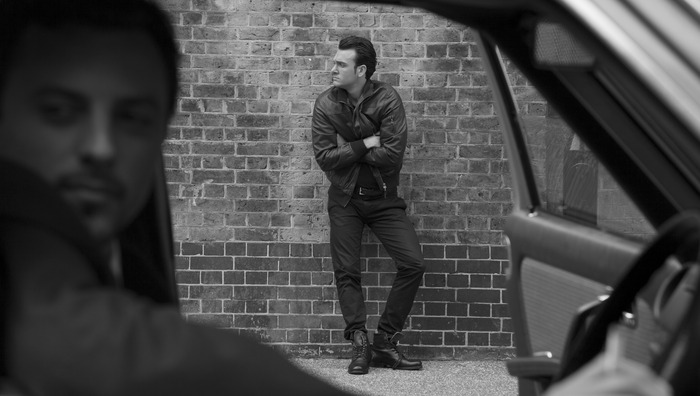Interview: Soho Cigarette director Jonathan Fairbairn
The Boar Film had a chat with director Jonathan Fairbairn about his recent independent feature, Soho Cigarette. Shot around the streets of Soho, the film entails a young Italian man taking groups of camera-laden tourists on Rock’n Roll tours. You can check out our writer’s thoughts on the film here.
The Boar Film: What was your main inspiration for Soho Cigarette?
 Jonathan Fairbairn: The main inspiration for Soho Cigarette was the streets, the energy and characters of Soho. I’ve been working in a great restaurant in Soho for six years and through that place I’ve got to know the fabric of Soho, the underside of the place that makes it what it is. I think most places in London have a kind of transient surface that to the visitor creates a certain impression, but that impression sits on this kind of more stable underside that maybe isn’t so immediately recognisable and might actually be quite different from the surface. That’s what the film grew out of, an attempt to capture some of the energy and characters that make up that underside.
Jonathan Fairbairn: The main inspiration for Soho Cigarette was the streets, the energy and characters of Soho. I’ve been working in a great restaurant in Soho for six years and through that place I’ve got to know the fabric of Soho, the underside of the place that makes it what it is. I think most places in London have a kind of transient surface that to the visitor creates a certain impression, but that impression sits on this kind of more stable underside that maybe isn’t so immediately recognisable and might actually be quite different from the surface. That’s what the film grew out of, an attempt to capture some of the energy and characters that make up that underside.
The Boar Film: What was the hardest thing about directing your first feature?
JF: The physical logistics of organising the shoot, making it happen in so many different locations with so many different actors. Every filmmaker I respect has always said, “keep your first feature simple, shoot in one place or shoot close to your house!” And that’s what we wanted to do, but the story just didn’t want to be simple, and we had access to these great locations. I mean pretty much anything is possible if you have a realistic feel for what it involves, the question is simply whether you’re prepared to do it.
The Boar Film: Why did you decide to shoot the film in monochrome?
JF: We shot in black and white because we wanted to create a visually cinematic film. Black and white is relatively simple to control, but on a budget of £20,000 there is really no way to control colour and both Gavin (the director of photography) and I both felt that colour is too important not to manipulate if the film is in colour. We didn’t want to make a film in colour just because there was colour there. It would be like getting Javier Bardem to be in your film and then not getting him to act. What would be the point? But you know apart from all that, we just felt like black and white was right. The film looks great in black and white and it feels right for the subject.
The Boar Film: Why did you choose to centre the film on Italians in London?
JF: Actually there’s only one Italian in the film, but there are lots of non-British people for sure. I think the simple answer is I find there’s something refreshing, and exotic about meeting people and listening to people from other places. And that is the reality of the London I know, a lot of other places as well. I think there’s something fundamentally exciting about someone who comes from somewhere else – its like meeting someone from another planet – I want to know what its like on that other planet! And the most immediate trigger for that interest is their accent – its like a trigger for an adventure into the unknown – maybe it sounds a bit over dramatic to say that but that’s kind of how it feels, this person knows things you don’t know, they’ve seen things you haven’t seen – hanging out with foreign people is like travelling without moving. So there’s something really refreshing about a mix of accents that I love, I always think accents are a bit like music. I mean I love listening to foreign people talking in their native language. You don’t know what they’re saying so you’re free just to listen to the sounds, and its like listening to music, and I think it’s a bit like that when you hear a foreign person talking English, the altered accent changes the meaning in some way, or changes the colour of it. There’s a kind of limitlessness to the mixing of foreign people in film that I find really exciting.
The Boar Film: How was the experience of working with this group of actors?
JF: Great! Working with professional actors is always the fun part! And good actors make your job as a director so much easier and on a budget this small you really need that. I’d love to work with them again.
The Boar Film: One of the most interesting aspects of the film is a girl having died in the backseat of the Mercedes. What motivated you to include this?
JF: I love the idea of a character not actually being in a film, you know exerting an influence purely by their absence. And it’s similar in a way to how the Mercedes is a character in the film. I mean you have this young dude, D, the central Italian character in the film, who for want of a better word is a bit of a dick really, and everything he tries to do is based on bravado and trying to prove something but at every turn he fails, it’s as if life is laughing at him. And the only two characters he has any kind of meaningful interaction with are the Mercedes and the dead girl in the backseat. There’s something kind of funny about that but also very human, I think we get to see his human side and therefore learn to care for this guy through them.
The Boar Film: The scene where D argues with the tourists is surprisingly funny, have you ever considered doing a comedy?
JF: Yeah I’d love to write or make a film that people considered a comedy. I tend to explore ideas quite loosely and see where they go so I think it’s safer to label something a comedy after I write than before. Having said that, I’ve never tried to write to a specific genre, maybe I’d surprise myself!
The Boar Film: Which directors have influenced you the most?
JF: There are loads but of the top of my head I’d say Wong Kar Wai, Alan Clarke, Jean Luc Godard, Stanley Kubrick, Steven Spielberg, Milos Forman, Richard Linklater, Martin Scorsese, Francis Ford Coppola, Michael Cimino, Bertrand Blier…
The Boar Film: You directed from your own script for this film. Would you ever consider directing someone else’s script?
JF: For sure, I already have and would love to again (I made a short film called The Bastards by Graham Kibble White – 12 minutes inside a Glaswegian debt collection office)
The Boar Film: Are you working on anything new at the moment?
JF: Yeah, we have a few projects we’re developing but the one we’re focusing on right now is based around a restaurant and a slightly crazy chef. It’s really a progression of lots of ideas we had for Soho Cigarette that didn’t end up in the film. I love taking an audience into a cinematic version of a real environment – something Fellini did so well in La Dolce Vita and Martin Scorsese in Mean Streets – two films that had a big influence on us in making Soho Cigarette. You know Soho is so rich for the imagination, there’s so much cinematic potential there, and I think making Soho Cigarette showed us a way to enter that world so we now want to go back in there.
Follow and Tweet @sohocig
Like and Share over on Facebook
For more info go to the Official Film Website




Comments